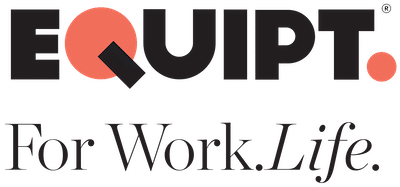After 10 years in an HR career, I took a 2-year break to care for an ailing parent who passed away a few months ago. Getting back into the workforce has been much harder than I expected. How can I position myself in a positive light and get more interview opportunities with this big gap on my resume? Jaymee, 33
A. I offer my deepest sympathy for your loss. ❤️ As you have experienced, being a caregiver is an enormous responsibility that comes with personal and professional sacrifice and emotional stress. I hope you have taken the time to grieve. Fortunately, many employers recognize that resume gaps are part of real life and are no longer frowned upon.
Earlier this month, I wrote about recovering from a layoff, including 11 tips for a new job search. Consider taking a relevant course or workshop to demonstrate a growth mindset to a potential employer. For example, focus on key topics that HR leaders (and C-suite executives are struggling with) such as intergenerational leadership, building a culture of inclusion and belonging, becoming a conscious leader, etc.
Naturally, you’ll want to ensure that your LinkedIn profile and resume represent your expertise and new credentials. If you need fresh eyes for this exercise, we offer a Resume Revamp service with an expert. 📝
Reconnect with former colleagues, clients, and collaborators from your first 10 years and let them know you’ve re-engaged in the workforce and are enthusiastic about finding a new role. Meet them for coffee, review their LI to see if they know someone you’d like to meet and ask about opportunities that may be a good fit. Ask them what they enjoyed most about working with you so you have a first-hand perspective on your potential value proposition.
Last, be prepared to share what you learned during your caregiving experience and how that translates to the value you can bring. Are you a more empathetic listener? Can you prioritize more effectively? Are you more prepared to lead with compassion, commitment, and a sense of urgency? Do you have more patience and capacity to problem-solve for the unexpected? 💡
Be persistent and patient. You’ll find an opportunity that utilizes ALL of your lived experiences. 💪
I have been loyal to a fault. I thought following a notable CEO from job to job (to job!) would be a good strategy. Out of nowhere, I lost my job, and so did the rest of my department. I am trying to look at this as an opportunity for a fresh start but it’s demoralizing to be let go, especially when I didn’t see it coming. Was I naive to think I was protected? Now what? Carmen, 36
A. Loyalty is a noble trait. 🎖️ Yet, being blindly loyal can be a liability. Following an accomplished CEO from one job to another is a great way to accelerate your career, expand your responsibilities, and increase your pay. It’s often a strong move! However, no business is immune to market forces, missed earnings, or mismanagement. Layoffs can and do happen with little notice to employees.
It’s not your fault. (You can read more about that in my newsletter from earlier this month and get some useful tips for resetting.) 📧
The good news is that if a CEO recruited you more than once to be on their team, you’re likely in a position for a stellar reference and letter of recommendation, so ask for both. Further, this CEO is probably well-connected, so figure out who they know that could benefit you. From there, you could ask for a professional introduction to one (or more) of their connections and for them to reach out to their network with your resume and a compelling referral message.
With an appreciative CEO from multiple jobs in your corner, you have a leg up on this search. Use this asset to your advantage, as it’s a well-earned reward for your past loyalty. 👏




